Abstract
A study was conducted to determine whether the survival of Rhizobium phaseoli in acid soils could be predicted on the basis of the tolerance of the organism to acidity in culture. Of 16 strains tested, all grew in culture at pH 4.6, but only those that grew at pH 3.8 survived in soils having pH values of 4.1 to 4.6. Strains that tolerated the lowest pH values in culture were tolerant of the highest aluminum concentrations. In one acid soil, an acid-tolerant strain was unable to survive in numbers greater than 100/g, but the poor survival was not related to the level of extractable aluminum or manganese in the soil. Reproduction of an acid-tolerant strain of R. phaseoli was enhanced in the rhizosphere of Phaseolus vulgaris in both acid and limed soils, but stimulation of an acid-sensitive strain by the plant occurred only in the limed soil. These results indicate that cultural tests can be used to predict the ability of R. phaseoli to survive in acid soil.
Full text
PDF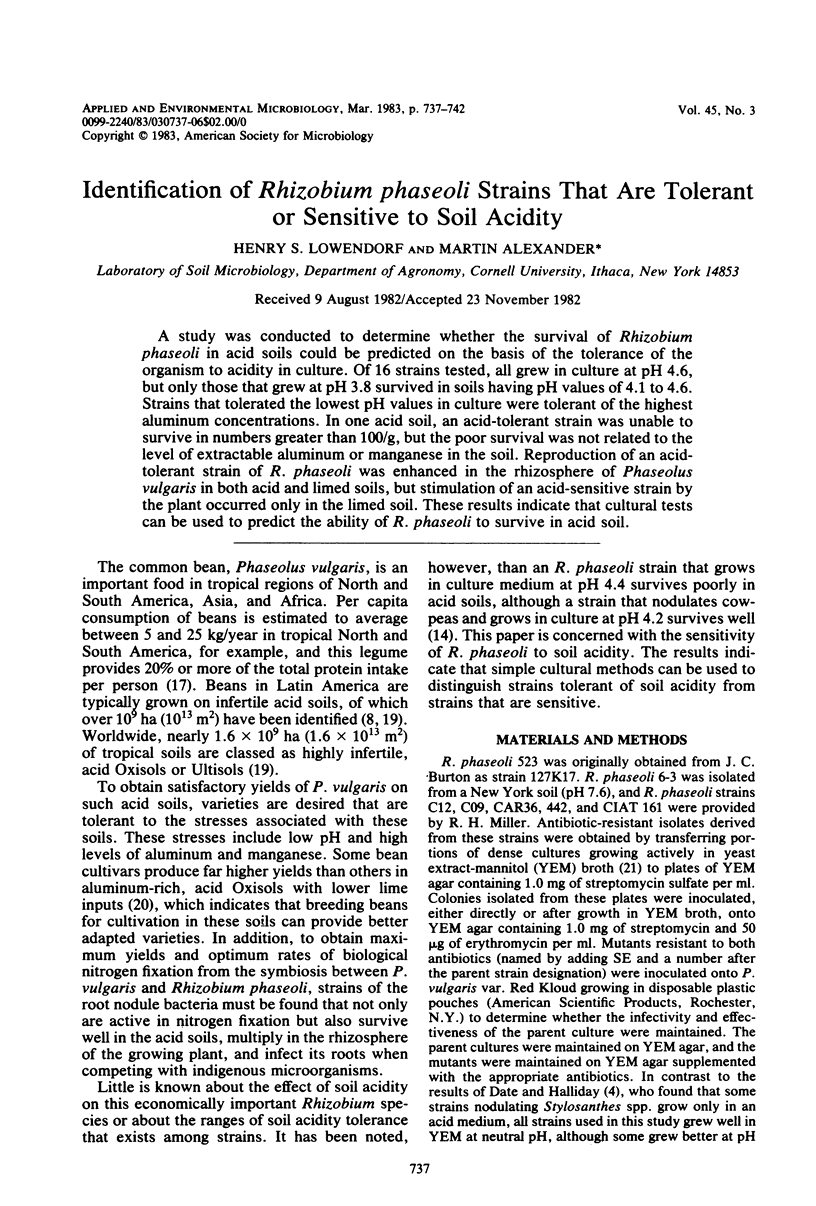
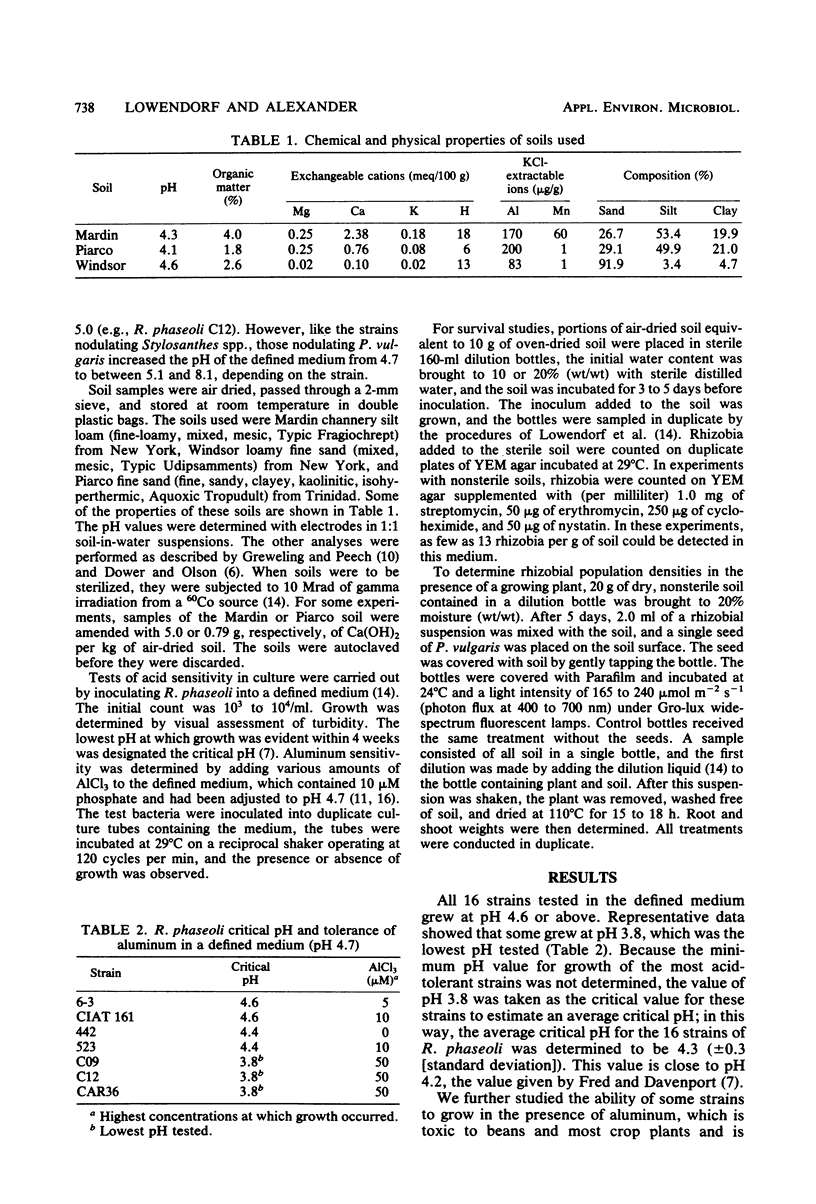
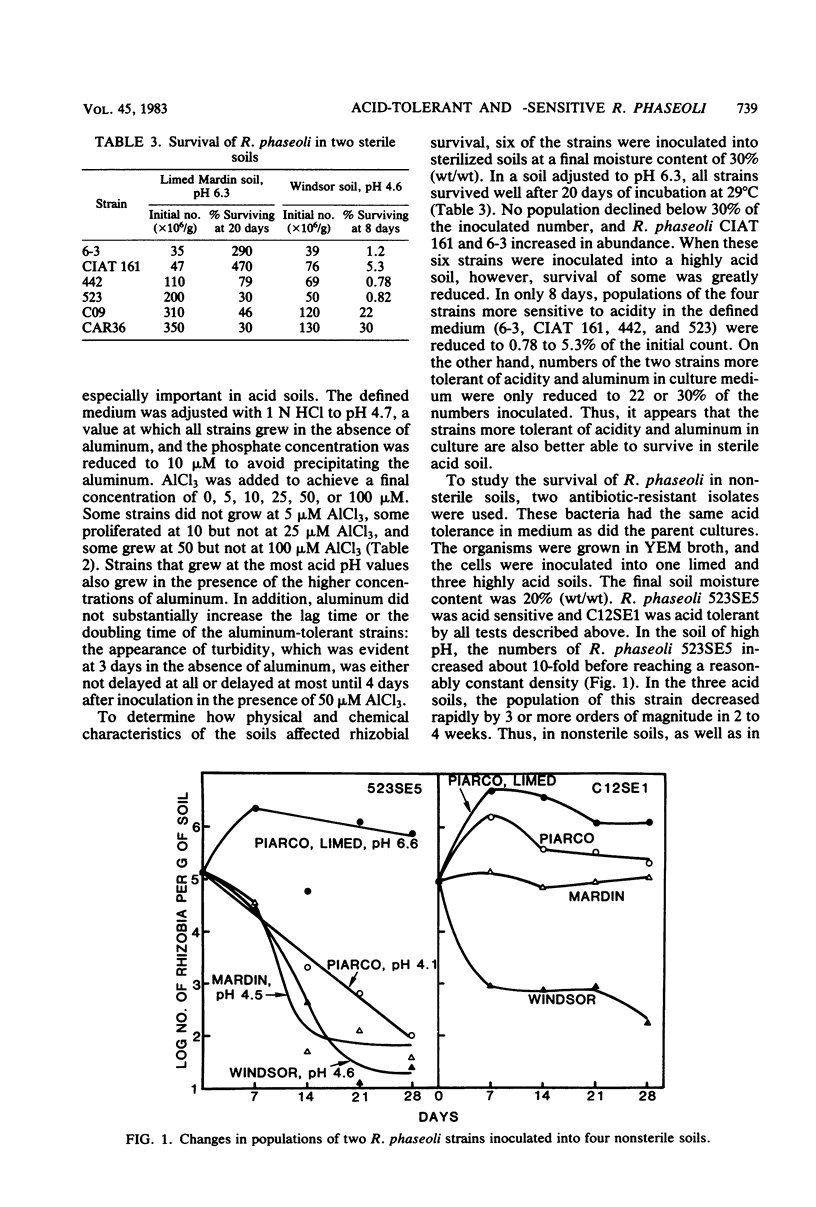
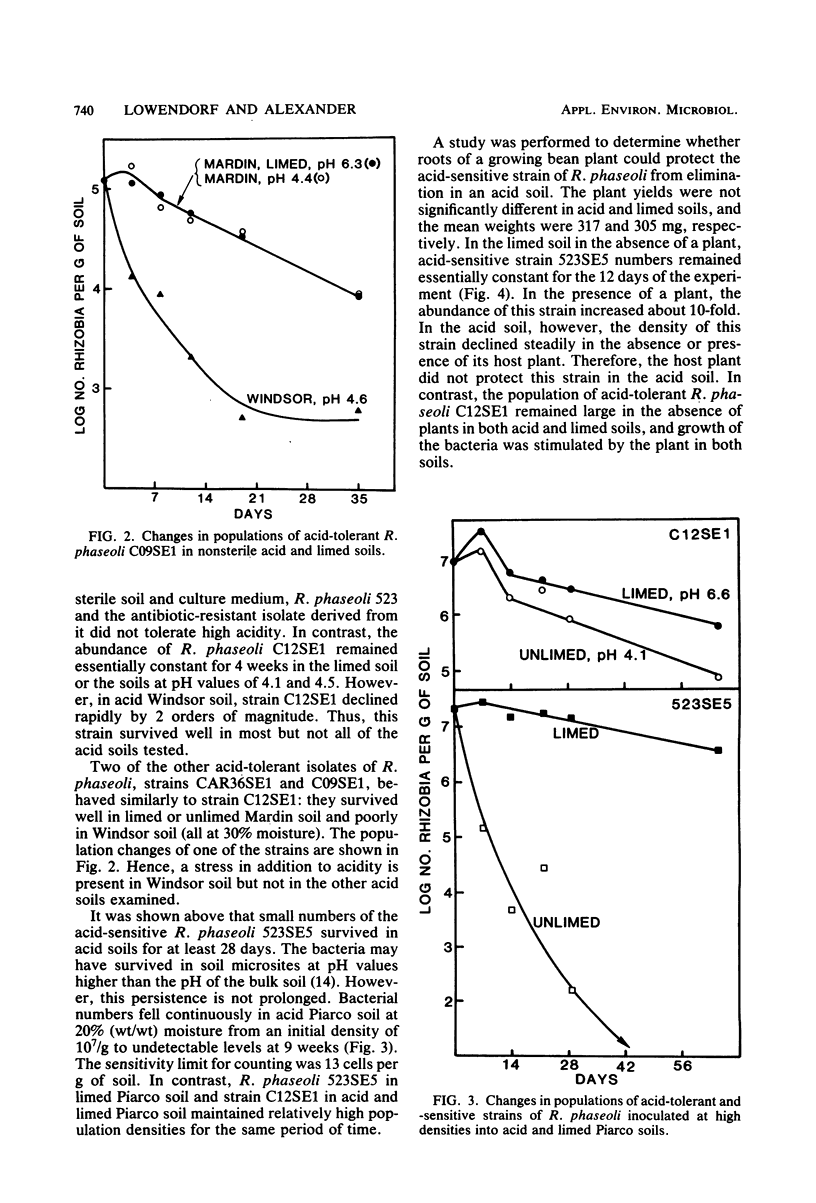
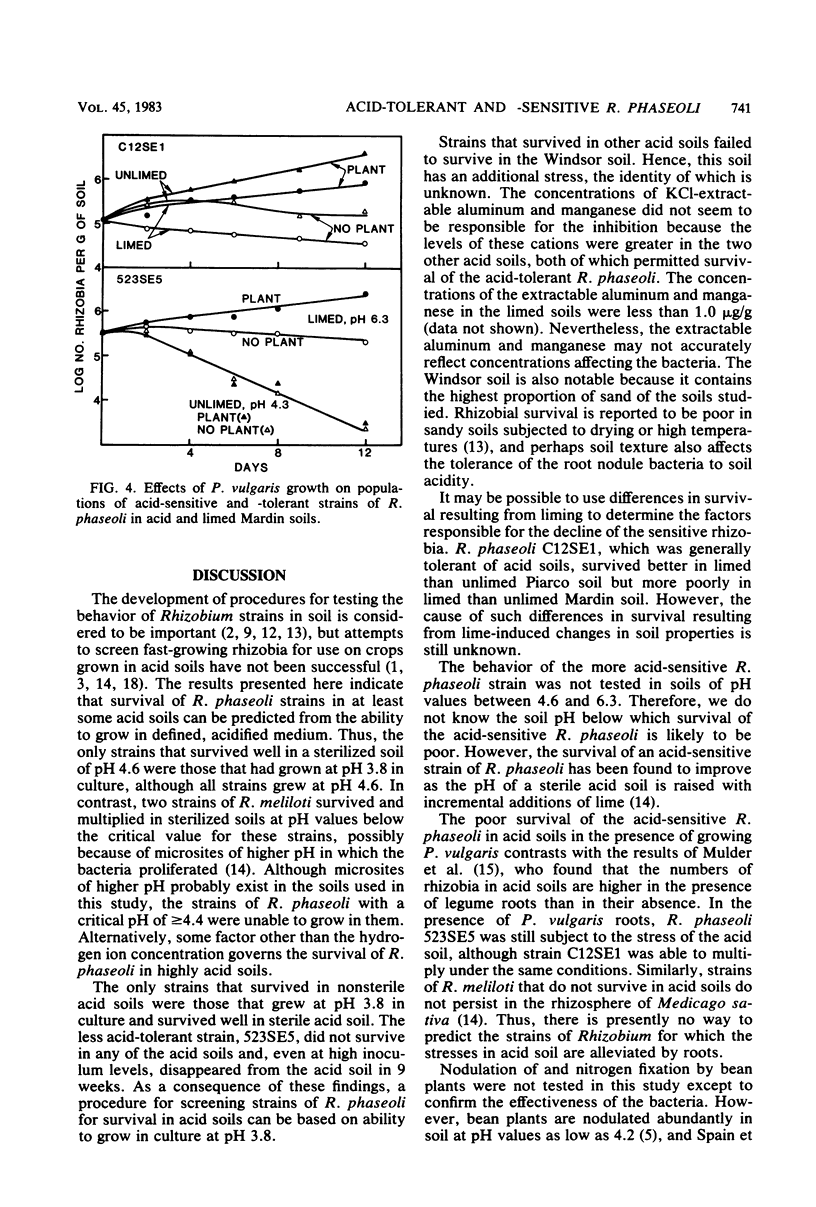
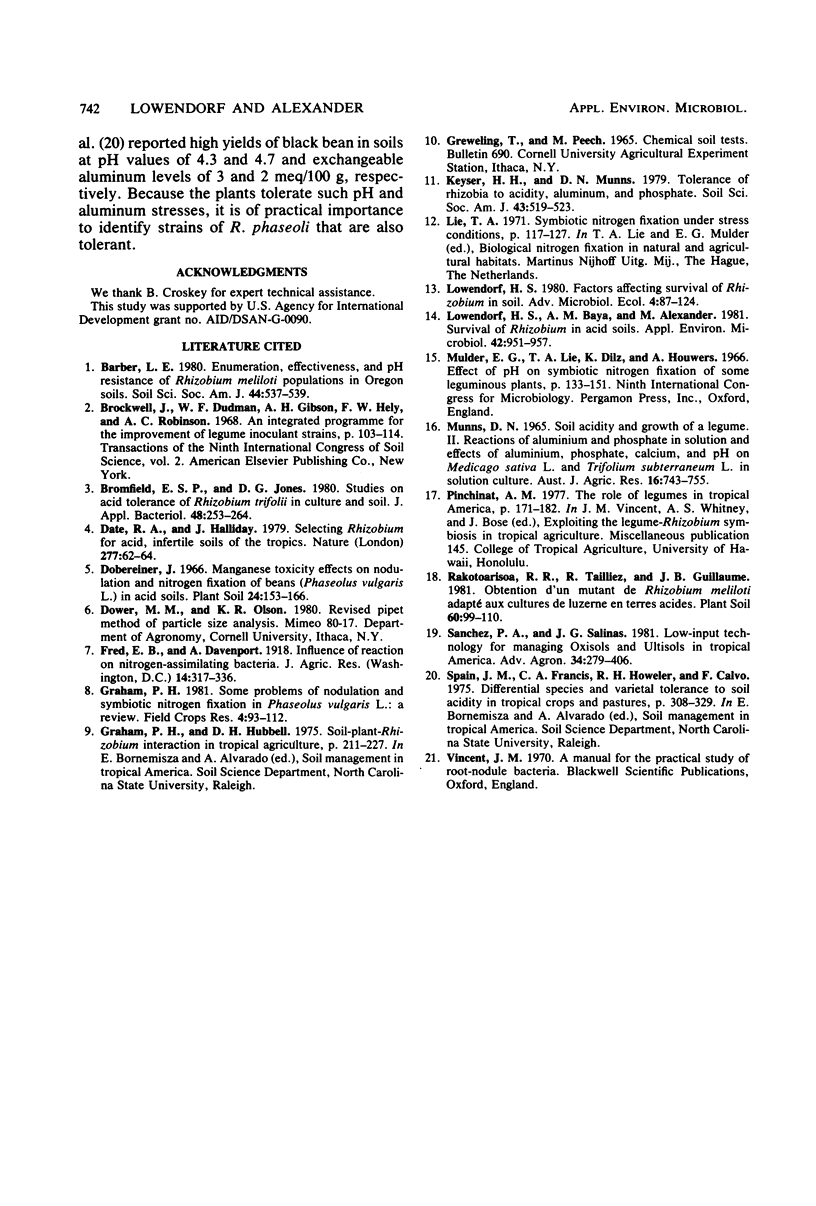
Selected References
These references are in PubMed. This may not be the complete list of references from this article.
- Lowendorf H. S., Baya A. M., Alexander M. Survival of Rhizobium in Acid soils. Appl Environ Microbiol. 1981 Dec;42(6):951–957. doi: 10.1128/aem.42.6.951-957.1981. [DOI] [PMC free article] [PubMed] [Google Scholar]


